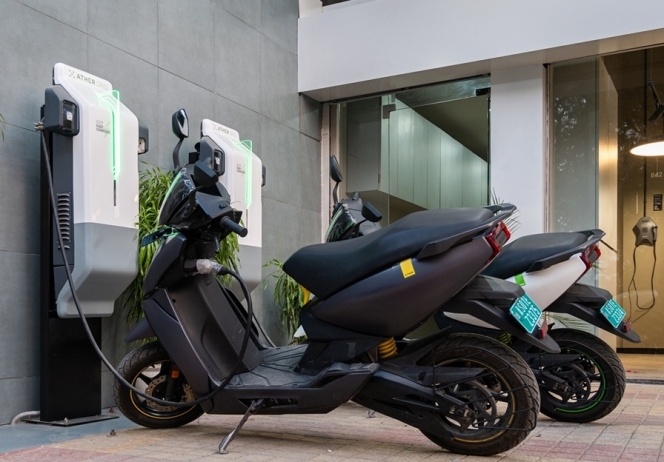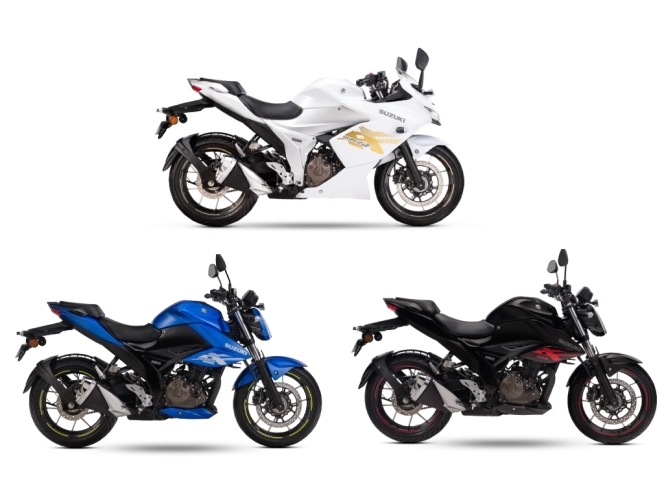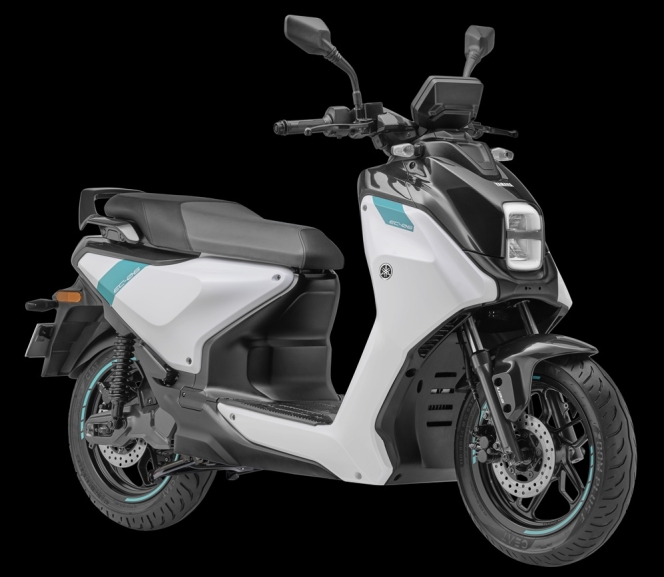Benelli India To Double sales In 2021 With New Products
- By Sharad Matade and Venkatesh Koushik
- February 24, 2021

Q: India’s two-wheeler market is highly competitive and dominated by commuter two-wheelers. How will Benelli field its products?
Jhabakh: The Indian two-wheeler market is the largest in the world as we speak. Barring the slowdown in the last one year, it is one of the growing markets at a high pace. So, I believe once we get through the tough period, we will go back to the heyday’s growth numbers.
Definitely, when the market size is big and so much at stake, one can expect a lot of competition around, which is what we see in India. Earlier the Indian two-wheeler market was completely dominated by commuter bikes, but in recent years, we are witnessing the emergence of the premium and mid-premium segments. Though the numbers are small, the segments are growing very strongly over the last few years.
Our products and services bring a different value proposition to the Indian market. Benelli is a fairly young brand in India compared to our peers, but we are confident about our products. We are currently offering products in the range between 250cc to 600cc, which is just above the commuter segment that is the150-200cc space. With our current product portfolio, we cater to different customers from the cruising, adventure, sports segments and more. So that way, we have a lot of depth in our portfolio and focus on value for money products.
Q: What consumer-centric initiatives are you planning to introduce to support the user’s requirement and enhance Benelli’s brand image?
Jhabakh: Benelli has been in India for the last two years only and sold over 5,000 units. As of now, we 35 dealers across the country. In that sense, we have been picking up a lot of recognition and becoming one of India’s fastest-growing brands.
We aim at continuing the growth with the launch of new products in 2021. The company will also increase our dealership network and retail presence across the country. The company targets to have 60 outlets by March and, from there on, we will be adding approximately two dealers every month in our network. So, the intention is to continue growing organically. With this, the brand will reach to more people and geographics increasing the overall awareness.
Apart from this, Benelli will also be focusing on riding activities to enhance brand awareness. Going forward, based on how situation permits, we have aggressive plans for different types of riding activities such as day, night and weeklong rides.

Q: How is Benelli managing the spare part supplies as many companies face issues on importing parts, especially from China?
Jhabakh: Benelli imports spare parts from multiple countries and locally. Of course, due to lockdown, there was a little bit of concern on the supply chain side.
When we started two years ago, we did not have a single local supplier. Today, we have around 20-25 local suppliers and are currently in talks with many suppliers. We aim to increase the local content in our products and reduce dependency on imports without compromising quality.
Q: What are the plans for localisation? What upgrades are expected in the production lines to increase the production capacity?
Jhabakh: Localising the content and getting Indian suppliers on board have always been our aim as it also safeguards us from global shocks, like the one we just faced. We are already working with about over 20 suppliers in India, primarily for the Imperiale 400, because that is the product which has the maximum volume for us in our portfolio.
We were in the discussions with many suppliers, but we had to halt the talks due to the lockdown. When we procure certain safety products, like brakes, abs, the process of testing can take as long as nine months to one year and requires extensive testing before we can change to a new supplier.
On investments and up-gradation, we utilised the lockdown period to upgrade our capacity at the plant. We now have a capacity of 30,000 units a year.
Q: In India, dealers make less than one percent profit in the business. How are you taking new dealers onboard and on which cities Benelli will focus?
Jhabakh: Benelli takes dealerships and their profitability very seriously. We keep a good balance between the investments that somebody makes into the business and returns. We have been through the closure of four to five months and still managed to hold on to all the dealers in our network. In fact, we have added dealers to our network through digital launches. So, people continued to showcase their confidence towards the brand, the products, and the company’s future strategy.
We will expand on pan India for the dealership, having a major focus on the north and west India. We already have a good presence in the south in terms of dealerships.
Q: Common issue plaguing the premium two-wheeler industry is service reliability. How does the company plan on winning customer confidence with service?
Jhabakh: We also don’t want our customers to face after-sales or service issues. If you buy an Imperiale today, you get a three-year warranty along with two years of free service. Apart from that, we have roadside assistance, AMC and pick and drop facilities. We also keep a smooth supply of service products focusing on our customers’ after-sales experience, so that at any given point of time, they do not have to worry about a part failure.
Since our bikes are specialised, it requires specialised training to service them. We have an internal training programme and a training facility that train all our dealership staff, especially for new dealerships or new products. In fact, during the lockdown, we converted all our training into e-training modules. We have created video modules which have helped us to save time and money.
We also have a concept called the Flying Doctor, where if a dealership is facing a problem which is not getting resolved for two or three days by the dealership staff, then highly technically trained personnel will be deployed to the dealership to resolve the problem. We are also now coming up with DIY videos and DIY sessions at our dealerships across the country where we invite customers to come down and learn how to do basic maintenance on their bike and share tips to improve the bike’s life the ride quality.
 Q: At present, Benelli has only one model Imperiale 400 complying with BS-VI emission norms. Tell us about your plans to upgrade the other models to the new norms?
Q: At present, Benelli has only one model Imperiale 400 complying with BS-VI emission norms. Tell us about your plans to upgrade the other models to the new norms?
Jhabakh: Initially, the plan was to launch the BS-VI Imperiale in April 2020 and just before the festival, we wanted to upgrade the rest of the portfolio. But we had to shelve our plans due to COVID. We were able to introduce the BS-VI bike only in August post which we did not want to bring in any other bikes towards the end of the year. So that’s why we decided, from January 2021, we will start launching the rest of our BS-VI portfolio. Between January and August, we will be launching five to six new models in BS-VI. Initially, we plan to bring back the 500cc category. So, you will have the TRK and Leoncino come back, after that we will move on to the sub 500cc category.
We are planning to expand our 250cc portfolios. We launched the Leoncino 250 last year and strongly consider bringing other variants in the 250cc range.
Q: Would you be introducing electric bikes in India? Elaborate.
Jhabakh: Benelli, as part of the global portfolio, has e-bikes in certain countries. We have been closely monitoring the e-bike market in India. I think the Government of India has also been putting a very strong push for e-bikes in India. So, in 2021 we will focus on reintroducing our BS-VI portfolio and based on how the e-bike market develops and matures, we will plan for it later.
Q: How important is digitalisation for Benelli?
Jhabakh: Digitalisation has always been important. All the companies are moving towards being more digital, and the pandemic has only uplifted the pace for digitalisation. The entire buying experience has a couple of steps. At first, people do their research on the products, prices, finance and comparisons online. We have been investing a lot of our time and money in the digitalisation. We are trying to make information available to consumers on platforms that they are accessing. In fact, when we had launched the Imperiale 400, we made bookings available online.
In the second step, customers want to complete the transaction in an offline mode where they would like to come down to the store and get a feel of the bike, brand and environment before making the final decision and that is where our dealer network becomes very important. I do not see the entire buying process moving digitally, but a large part of the information process that goes into the buying decision will definitely move to digital. We will keep enhancing connected technologies in our products.
Q: Do you have any plans to set up a manufacturing facility?
Jhabakh: To have a manufacturing facility, it requires large investment and sales numbers for it to be viable. In 2019, we grew 100 percent compared to a year ago. Despite the lockdowns, we clocked a growth in 2020. For 2021, we target to grow by 100 percent. So, our idea is to continue improving sales numbers with the increasing level of the localised content. Once we reach a certain number sales per month, then there is viability to have a manufacturing plant.
Q: With complete localisation, by how much do you expect the overall price to come down?
Jhabakh: It is a difficult question to answer because localisation happens over time. Localisation needs investments and it is not about just replacing an outsider supplier with a local one. So, the answer is not that straightforward that the price will drop by this percentage. Localisation and price drop go hand in hand. The more you localise, the more the price will come down.
Q: What are the challenges in the business?
Jhabakh: I think more of the recent challenges have been with the lockdown and the lockdown’s subsequent opening. We import parts from many countries globally and because of the different rules in each country and states within the country, there has been a huge disruption in the global supply chain.
Also, the global restart has not been very kind. Freight expenses have shot up through the roof and the container availability has become very difficult. Parts that were taking 25 to 30 days transit time are now taking 45 to 60 days of transit time. But we see this as restarting issue and every week it is getting slightly better. We are hoping that maybe by February or March the market should stabilise. Also, after the festival season, many people have started buying again, be it bikes or cars or electronics or cloths. So, consumer spending capability is now slowly beginning to come back. If we continue in this format, and if there are no more shocks in the market, I think many of these challenges will go away. (MT)
Carolwood LP Completes Acquisition Of Indian Motorcycle Company From Polaris, Mike Kenney Takes Over As CEO
- By MT Bureau
- February 03, 2026

Carolwood LP has officially closed its agreement with Polaris to acquire the iconic Indian Motorcycle Company, which will now become an independent business.
The transition coincides with the 125th anniversary of the company, which also sees Mike Kennedy, a veteran of the motorcycle industry, take over as the Chief Executive Officer of the stand-alone entity.
The acquisition agreement includes the transition of approximately 900 employees to the new Indian Motorcycle Company. Manufacturing operations will remain at existing facilities in Spirit Lake, Iowa and Monticello, Minnesota.
Industrial design, technology and product development will continue at research and development centres in Burgdorf, Switzerland and Wyoming, Minnesota. Sales, service, and support for the dealer network and customers are expected to continue without interruption.
The company’s strategy involves concentrated investment in motorcycles, technologies, and craftsmanship. The executive emphasised a commitment to the brand's American manufacturing identity and its dealer partnerships.
Mike Kennedy, said, “It’s an incredible honour to take the helm of Indian Motorcycle as it celebrates its 125th Anniversary, empowered by a sense of gratitude and opportunity, and the support and ambition of a well-resourced, highly motivated ownership team. 2026 will be a special year to honour our history, but more importantly, to drive the brand into the future with a renewed level of commitment, focus and clarity that can only be found as a stand-alone company.”
The new leadership intends to focus on transparency and collaboration with its global dealer network, incorporating feedback into operations, marketing, and product development.
“We will achieve our vision through a deeper level of differentiation, leaning in on what makes our brand unique, and with products that possess a style, craftsmanship and performance quality that is uniquely justified by our historic legacy and spirit of innovation. Dealers are our most important partners, and we will judge our business based on the success of our dealers. We intend to be extremely collaborative with our dealers, actively listening to their feedback and incorporating it into our planning and decision-making, not only in terms of dealer operations, but also product development and marketing. America’s first motorcycle company will put America first. Our brand and business will be grounded in our American identity and more importantly, American manufacturing. ‘Built in America’ is not a slogan. It’s a competitive advantage, and we intend to use it,” added Kennedy.
Ather Energy Reports INR 9.95 Billion Revenue For Q3 FY2026
- By MT Bureau
- February 02, 2026

Bengaluru-based electric vehicle maker Ather Energy has posted its highest quarterly revenue to date, reaching INR 9.95 billion for Q3 FY2026, which marks a 53 percent YoY growth.
The company attributed the performance to sales volume growth as well as a rise in non-vehicle revenue. During the period, the company sold 67,851 units, a 50 percent increase YoY. Consequently, Ather’s national market share has expanded to 18.8 percent.
Ather Energy reported a narrowing of its EBITDA loss to INR 299 million, with the EBITDA margin improving by 1,600 basis points to (-3 percent). This progress is attributed to cost management and operating leverage.
Key Financial Data:
- Adjusted Gross Margin (AGM): INR 2.51 billion, up 111 percent YoY.
- AGM (Excluding Incentives): 23 percent, an increase of 1,100 bps YoY.
- Non-Vehicle Revenue: Contributed 14 percent to total income, led by software subscriptions, charging and services.
- Quarterly Loss Reduction: Narrowed by 45 percent compared to Q2 FY2026.
Tarun Mehta, Executive Director & CEO, Ather Energy, said, “Q3 has been a strong quarter for us. Robust festive demand, healthy volume growth, and improving market share together drove our best quarterly revenue and EBITDA so far. Over the past few quarters, we have stayed very focused on getting the fundamentals right by improving unit economics, margins, and operating leverage, and that effort is now clearly showing in the improvement in EBITDA. What is particularly encouraging is the strength of our ecosystem. AtherStack attach rates remain very high, and customer engagement is deepening even as our sales scale. All of this gives us confidence that the business is structurally prepared for sustainable, long-term growth.”
Suzuki Motorcycle India Reports 125,786 Unit Sales In January 2026
- By MT Bureau
- February 02, 2026

Suzuki Motorcycle India (SMIPL), the two-wheeler subsidiary of Suzuki Motor Corporation, Japan has reported wholesales of 125,786 units in January 2026, which marks a 15 percent YoY growth.
In the domestic market, the sales increased by 14 percent to 100,296 units, as against 87,834 units last year, while exports came at 25,490 units, up 21 percent YoY.
Deepak Mutreja, Vice-President – Sales & Marketing, Suzuki Motorcycle India, said, “The sales results for January indicate growing demand in both domestic and international markets. This momentum is supported by our ongoing focus on continuous customer engagement, after‑sales service enhancement, and network expansion. We will continue to invest in these areas to ensure that customers receive a seamless and reliable ownership experience throughout the year.”
Furthermore, the company reported INR 895.6 million revenue through spare parts sales, marking a 20 percent YoY growth.
Yamaha EC-06 E-Scooter Launched At INR 167,600
- By MT Bureau
- February 02, 2026

India Yamaha Motor (IYM), a leading two-wheeler manufacturer, has announced the price of its first electric scooter – the EC-06 – at INR 167,600 (ex-showroom Delhi). The e-scooter based on the River Indie will initially be sold in select cities through the company's Blue Square showrooms in a Bluish White colour.
The EC-06 features a 4kWh fixed battery paired with an Interior Permanent Magnet Synchronous Motor (IPMSM). It offers a certified claimed range of 169km on a single charge. It has a claimed top speed of 79 kmph, 6.7 kW of peak power, 26 Nm of torque and can be charged in 8 hours using a standard plug. It comes with 3 years or 30,000 km warranty for the battery.
The vehicle is built with IP67-certified protection for the motor and battery, while other electronics carry an IP65 rating for water and dust resistance.
The scooter includes three riding modes – Eco, Standard and Power – alongside a Reverse Mode. The chassis uses telescopic front forks with hydraulic dampers and a rear coil spring suspension. Braking is handled by 200mm discs at both ends, supported by a Combi Brake System (CBS).
For storage and technology, the EC-06 provides 24.5 litres of under-seat space and a colour LCD display. It integrates with the ‘Yamaha Motor Connect R’ app for real-time data access.
Hajime Aota, Chairman, Yamaha Motor India Group, said, “The EC-06 marks an important step in Yamaha’s journey toward sustainable urban mobility. As India accelerates its transition toward a carbon-neutral future under the government’s visionary leadership, Yamaha is proud to support this national agenda through high-quality electric innovation. Designed for everyday commuting, it balances efficiency with performance, offering an impressive range and intuitive features. As a first-of-its-kind model from Yamaha, it demonstrates how sustainability and riding excitement can coexist – true to our brand philosophy and our responsibility towards the future of India’s green economy.”







Comments (0)
ADD COMMENT